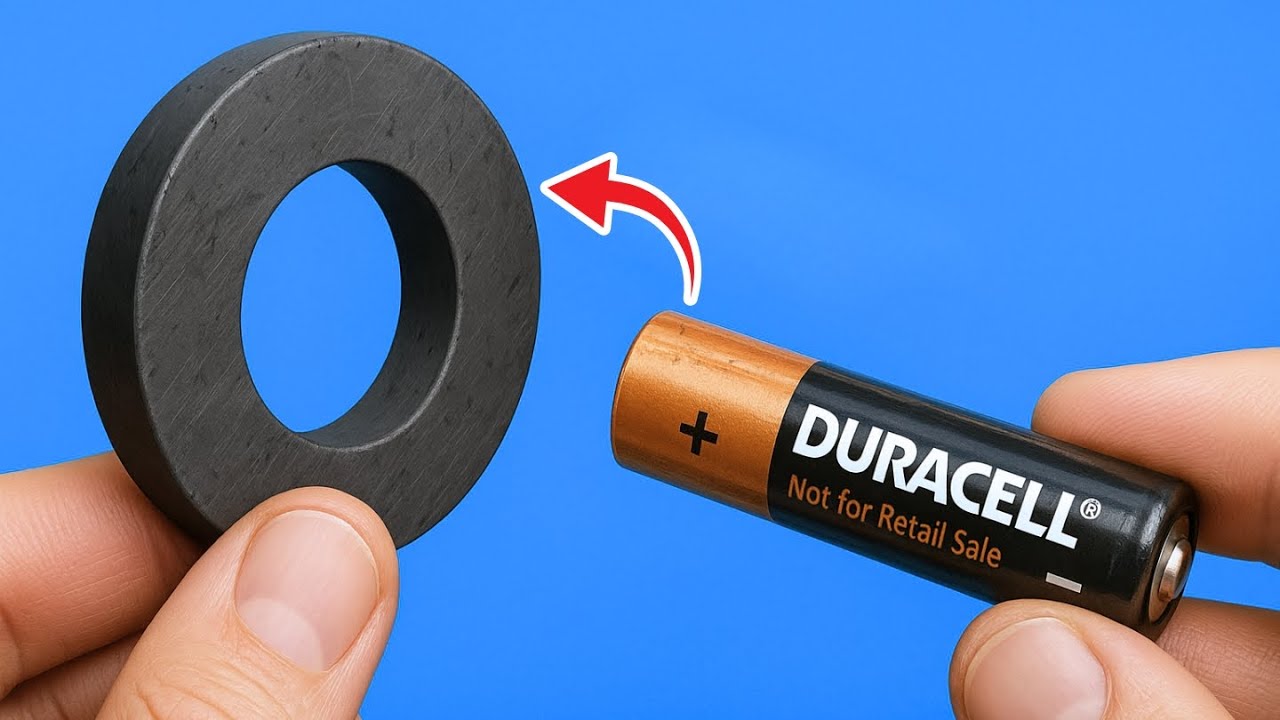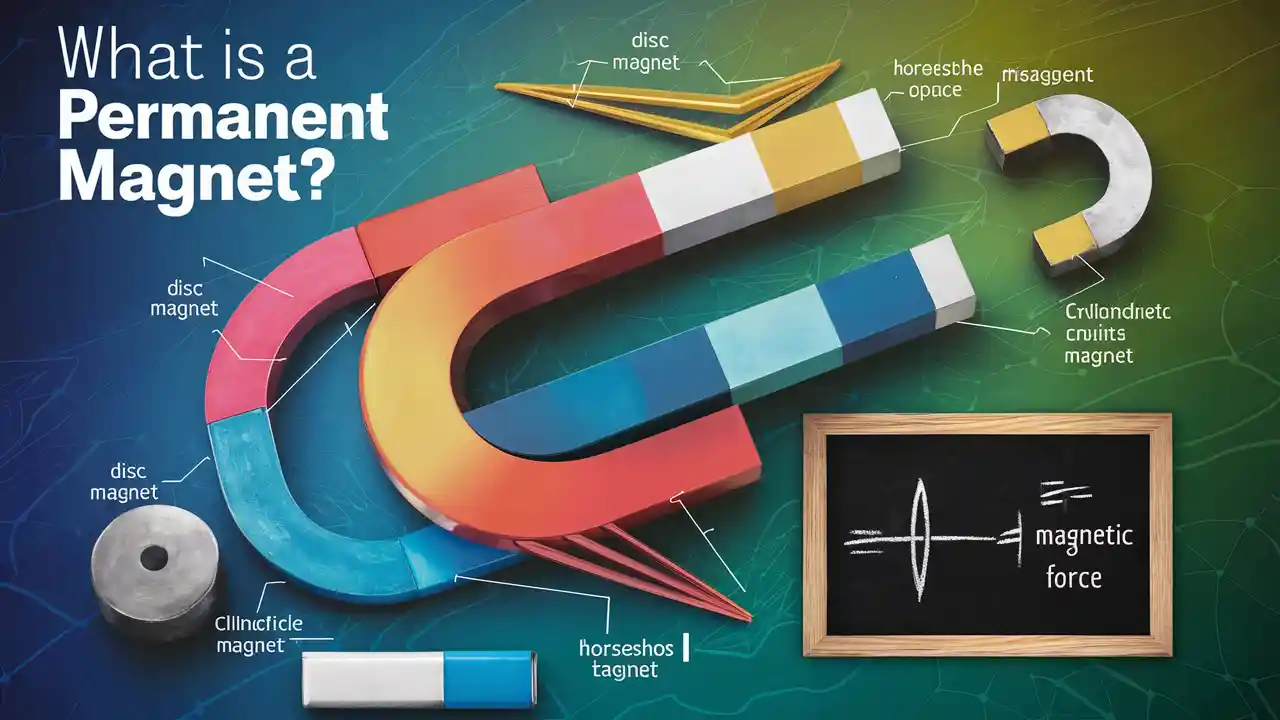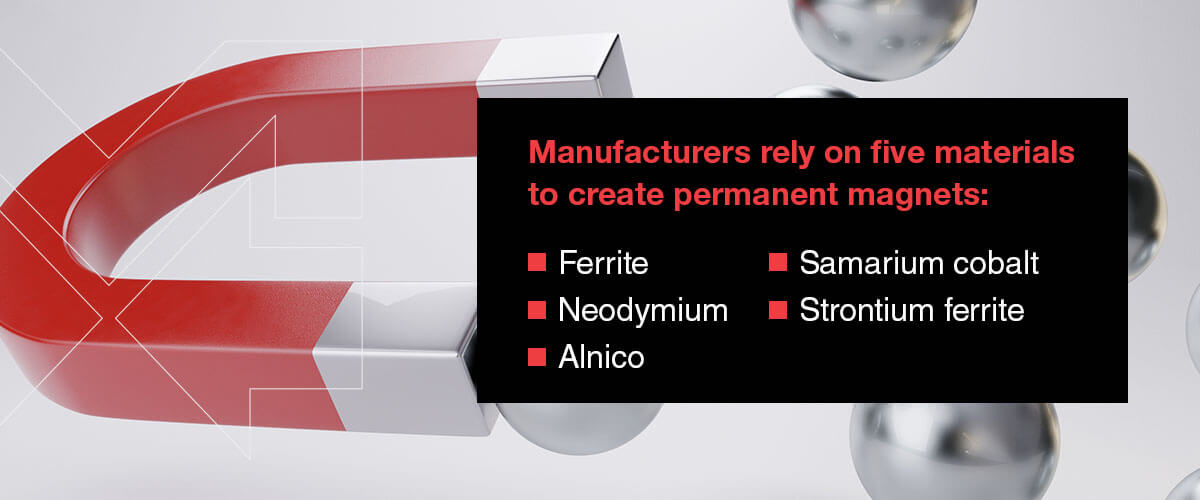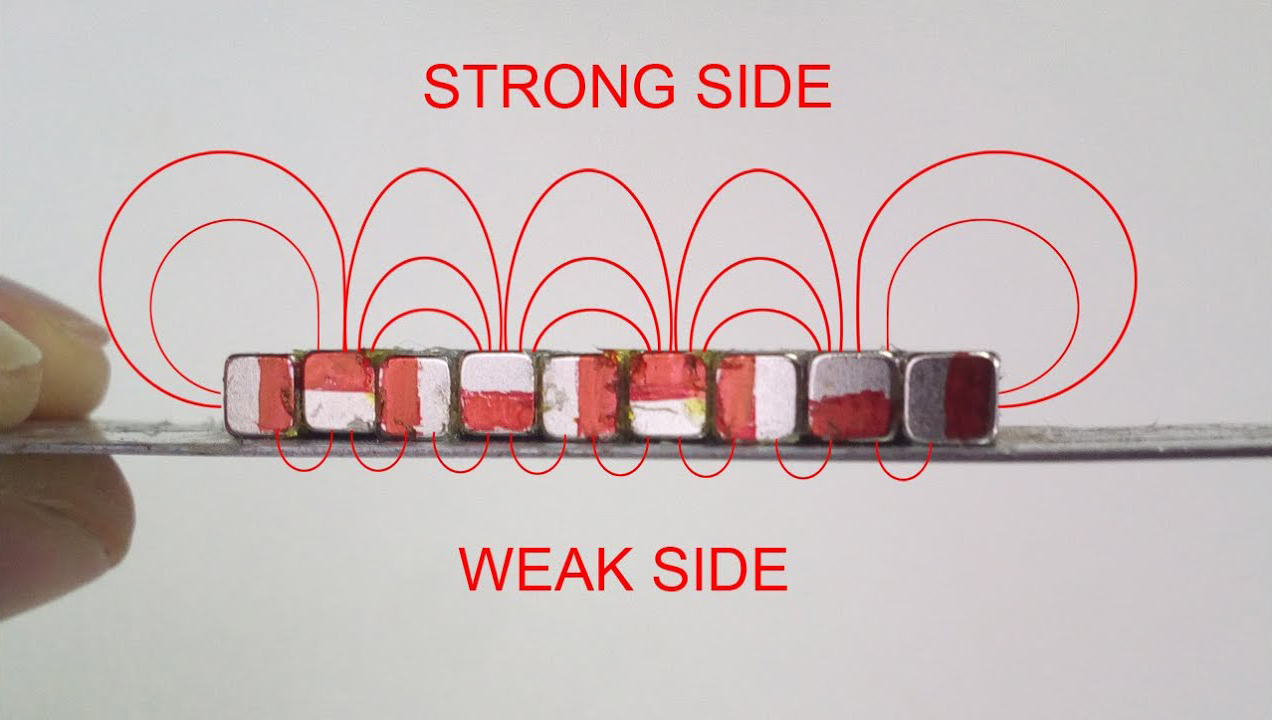Are batteries magnetic? It’s a question I get asked more often than you’d think. And honestly, I used to wonder about this myself when I was organizing my toolbox and noticed some batteries sticking to my magnetic parts tray.
Here’s the short answer: batteries themselves aren’t magnetic. But there’s a lot more to this story that might surprise you. In this post, as a professional neodymium magnets manufacturer, I will take a deep analysis into the battery magnetism.

Are Batteries Magnetic?
No, batteries aren’t magnetic on their own. A battery’s casing might contain magnetic materials like steel, so it’ll be attracted to a magnet, but the internal components of the battery itself aren’t magnetic. But when you connect a battery to a circuit and there’s a current running through it, it creates a slight electromagnetic field, just like any conductor with a current would.
The Truth About Batteries and Magnetism
Let me break this down for you.
Batteries don’t generate their own magnetic field when they’re just sitting there. They’re designed to convert chemical energy into electrical energy – not to be magnets.
But here’s where it gets interesting:
Many batteries will stick to a magnet. Confused? I was too.
The reason is simple: it’s not the battery itself that’s magnetic – it’s the steel casing that many batteries use. Think of it like putting a non-magnetic apple inside a steel container. The apple isn’t magnetic, but the container sure is.
Why Some Batteries Stick to Magnets (And Others Don’t)
I recently did a little experiment in my workshop. I grabbed every type of battery I could find and tested them with a strong neodymium magnet.
Here’s what I discovered:
Batteries That ARE Attracted to Magnets:
Most button cells – These little guys usually have steel cases, so they’ll stick to magnets like nobody’s business.
Alkaline batteries (AA, AAA, C, D) – The cylindrical cells we all have in our remotes? Yep, they’ve got steel casings too.
Nickel-metal hydride (NiMH) rechargeable batteries – Same deal. Steel case = magnetic attraction.
Batteries That AREN’T Attracted to Magnets:
Lead-acid batteries – Your car battery? It’s wrapped in plastic with lead inside. Neither material is magnetic.
Some lithium batteries – Particularly the pouch-type cells used in phones and laptops. These use plastic wrapping instead of metal.
Carbon-zinc batteries – These older-style batteries have zinc cases, which aren’t magnetic.
The Electromagnetic Field Connection
Now, here’s something that blew my mind when I first learned it:
When you connect a battery to a circuit and current starts flowing, it does create a magnetic field. But we’re talking about an electromagnetic field here – not permanent magnetism.
Think about it this way:
Any wire with electrical current flowing through it creates a magnetic field. It’s basic physics (thanks, Ampere’s Law!). So when your battery powers something, there’s a tiny magnetic field around the wires and the battery.
But the moment you disconnect the battery? That field disappears faster than my kids when it’s time to clean their rooms.
What About Those “Non-Magnetic” Batteries?
Here’s where things get really interesting.
Some applications absolutely cannot have any magnetic properties near them. Think MRI machines, sensitive scientific equipment, or certain military applications.
For these situations, manufacturers make special non-magnetic batteries. They typically use:
- Non-magnetic stainless steel cases
- Plastic casings
- Special alloys that minimize magnetism
But even these “non-magnetic” batteries aren’t perfect. When stainless steel is formed into a battery case, the manufacturing process can actually make it slightly magnetic. It’s way less magnetic than regular steel, but if you’ve got a strong enough magnet, you might still detect some attraction.
Can Magnets Damage Your Batteries?
This is probably the most important question, right?
The good news: Placing a magnet near your batteries won’t hurt them.
Here’s why:
The chemical reactions inside a battery that create electricity don’t care about external magnetic fields. A magnet can’t mess with the acid solution, the electrodes, or the separator inside your battery.
I’ve stored batteries in magnetic parts trays for years with zero issues. The batteries work just fine, hold their charge normally, and last as long as they should.
But There’s One Exception…
If you’ve got a bunch of loose batteries rolling around with magnets, the batteries might stick together. And when battery terminals touch, they can short circuit and drain.
So the danger isn’t from the magnet itself – it’s from batteries potentially touching each other.
The Lithium-Ion Battery Revolution
Recent research into lithium-ion batteries and magnetic fields has uncovered something fascinating.
Scientists have found that external magnetic fields can actually improve battery performance. How?
The magnetic field can:
- Speed up the movement of lithium ions in the electrolyte
- Reduce internal resistance
- Make charging and discharging more efficient
In fact, the 2019 Nobel Prize in Chemistry went to the developers of lithium-ion batteries, and research into magnetic field effects is ongoing.
Some studies show that batteries exposed to magnetic fields during charging can charge faster and more efficiently. We’re not talking about massive improvements here – maybe 5-10% in the best cases – but hey, every little bit helps.
Different Battery Types and Their Magnetic Properties
Let’s dive deeper into specific battery types you might have lying around:
Alkaline Batteries
Your standard Duracell or Energizer? These have steel cases and will definitely stick to magnets. The steel is there for durability and to prevent leakage.
Button Batteries (Watch Batteries)
Most button cells like CR2032s have stainless steel cases. They’re weakly magnetic – a strong magnet will pick them up, but they won’t stick as firmly as alkaline batteries.
Rechargeable Batteries
- NiMH and NiCd: Steel cases, definitely magnetic
- Lithium-ion cylindrical cells: Usually steel cases, magnetic
- Lithium polymer pouches: Plastic wrapping, generally non-magnetic (though some contain nickel foil internally)
Specialty Batteries
- Lithium thionyl chloride batteries: These use non-magnetic stainless steel but often have a magnetic Kovar alloy rod in the center
- Lithium manganese dioxide cells: Weakly magnetic due to stainless steel cases
Real-World Applications and Concerns
You might be wondering: “When does this actually matter?”
Here are some real scenarios where battery magnetism becomes important:
Medical Devices: Pacemakers and other implanted devices need non-magnetic batteries to avoid interfering with MRI scans.
Aviation and Marine Navigation: Compass interference is a real concern, so battery placement matters in aircraft and boats.
Scientific Equipment: Sensitive magnetic field measurements require non-magnetic power sources.
Storage and Organization: Knowing which batteries are magnetic helps when organizing your workshop or choosing storage solutions.
The Bottom Line on Battery Magnetism
Let’s wrap this up with the key takeaways:
- Batteries themselves aren’t magnets – they don’t create permanent magnetic fields
- Many batteries stick to magnets because of their steel casings, not because the battery is magnetic
- Magnets won’t damage your batteries or affect their performance
- When current flows through a battery, it creates a temporary electromagnetic field
- Special non-magnetic batteries exist for sensitive applications
- Some cutting-edge research suggests magnetic fields might actually improve battery performance
So the next time someone asks you “are batteries magnetic?”, you can give them the full story. It’s not a simple yes or no answer – it depends on what part of the battery we’re talking about and what exactly we mean by “magnetic.”
And if you’re like me and use magnetic trays to organize small parts, go ahead and toss your batteries in there too. Just keep them from touching each other, and you’ll be fine.
The world of batteries is constantly evolving, and who knows? Maybe in 2025 we’ll see magnetic field-enhanced charging become standard in electric vehicles or smartphones. The intersection of magnetism and battery technology is just beginning to be explored, and I’m excited to see where it goes.
Remember: are batteries magnetic? Not really. But are they attracted to magnets? Often, yes. And now you know exactly why.



